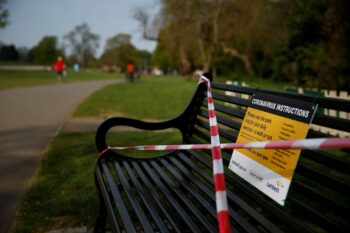Politicians in America sound off sanctimoniously about needing to “stick with science” in dealing with the Covid-19 pandemic, but Israeli scientists prove how difficult it is to find consensus in the best ways to limit the deadly pestilence.
After initial success handling the pandemic, in July Israel saw a resurgence of Covid-19. On September 13th, Israel’s government approved a severe, three-week lockdown that will limit people’s travel, shut down malls, restaurants, hotels, fitness clubs, and swimming pools. It will also limit indoor gatherings to 10 people.
Epidemiologist Dr. Hagai Levine of the Israeli Association of Public Health has stated that complete lockdowns are an extreme measure that should be reserved as “a last resort for very unusual situations of very contagious and deadly diseases. This is not the situation with Covid,” he told The Jewish Voice.
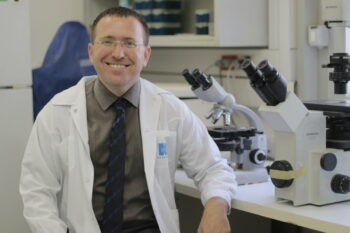
He labeled the shutdown of work and social activities as “medieval” in its approach and not necessary for controlling Covid-19.
“At the beginning, we didn’t know enough about how the virus spread and even then, public-health professionals thought the response should be more proportional to the specific risk,” Levine said. “Now we know much more about the virus. The risk of transmission in open air is very low. It therefore does not make any sense, from efficiency or a public-health point of view, to force people to stay at home. What we need to do is proportional measures to reduce transmission so we will get slowly to a reduction of the disease.”
Simple mask-wearing, hand washing and social distancing should be enough to keep the pandemic in check. Everyone has a role in limiting transmission, he says.
“You explain that gathering in closed spaces is risky and in open spaces much less risky,” he said. “You give solutions for people to be educated in how they socialize, work and consume entertainment. We need to get people to understand how important it is to avoid any unnecessary contact. If we don’t have this internal motivation, nothing will work.”
Dr. Levine’s views fell on deaf ears, however, considering the government’s current course of action.
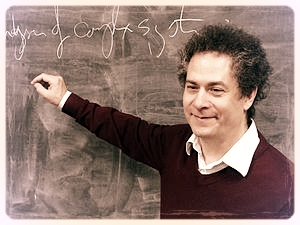
By contrast, Yaneer Bar-Yam of the New England Complex Systems Institute fully endorses lockdowns, in line with the current directives.
“If you fought a fire in your house and got it down to a small fire and then walked away, the fire will grow again,” he told The Jewish Voice. For the past 15 years, Bar-Yam has used mathematical tools to help governments and organizations deal with epidemics like Ebola. He cites air travel for the rise of worldwide contagion.
His End Coronavirus coalition aims to aid community-based solutions for policymakers, businesses and individuals.
Israel imposed rigorous limitations near the outbreak of Covid and saw a dramatic decrease in spread, Bar-Yam observed. But when things got better and Israel loosened restrictions, the disease flared up again.
“This is not a natural disease that circulates in the population,” he said. “It is driven by a simple dynamic. It grows exponentially in a normally behaving population until the population takes clear actions such as social distancing from people who might be sick and isolating people who are sick as determined by symptoms or testing.”
He says authorities face three scenarios: “Either you relax restrictions and infections will continue to grow; keep the current situation [of limiting gatherings and mandating mask-wearing], where you’ll have a constant but high number of nearly 2,000 new cases per day; or choose stronger actions and the number of cases per day will decline.”
“The shortest amount of time requires the strongest action. Within four to six weeks, anyplace in the world can be at zero transmission. It will take longer the more lax you are,” he says. “The way to do all the things everyone wants to do, and the way to save lives, prevent disease and make the economy recover, all result from getting transmission to zero.”
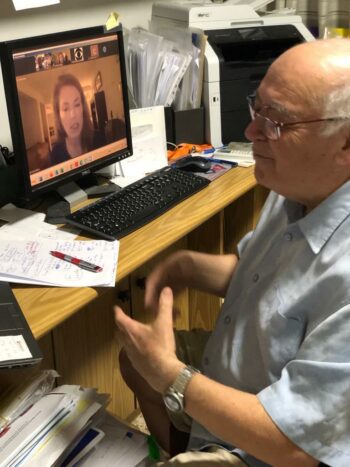
For his part, Dov Shvarts, a professor at Ben-Gurion University, advocates partial lockdowns: nighttime curfews, weekend lockdowns and voluntary quarantine for people over 67 and people with underlying medical conditions that make them high-risk. People can still work and study, but on weekends they should stay home, he told The Jewish Voice.
He advocates banning visits to gyms, pools, restaurants, theaters and houses of worship.
“Lockdown is the right mathematical option,” Shavarts said. “It has been proven an effective method to minimize the number of people contracting the virus and patients in serious condition.”
Professor Baruch Barzel with Bar-Ilhan Univesity sees it differently. He proposes alternating lockdowns by splitting populations into two groups, red and blue, with each group working for a week and then quarantining for a week.

“It takes about a week, on average, to get to the peak infectious stage and that is when you must be isolated. If you work a week and stay home for a week, the average person will be home at peak infection time,” he told ISRAEL21c. “This model synchronizes with the disease cycle and makes the experience much easier.”
“A general quarantine is non-egalitarian — for instance, terrible for restaurant owners but not bad for university professors. The 50-50 idea not only flattens the epidemic curve but also the socioeconomic curve. Everyone can keep operating and the burden is split evenly.”
Because it saved economy, Barzel’s model caught the eye of at least 15 world governments, including Israel’s.
“Currently, most of the experts agree there is no need for quarantine,” Barzel said. “As much as the numbers are high and troubling, we don’t see a pattern of exponential growth. We’ve seen linear growth for a few weeks, a constant level. Linear growth is manageable. We can live this way for a year if need be.”
But if contagion grows exponentially, governments should be prepared for an alternating lockdown so that “quarantine won’t be a doomsday scenario; it will be a reasonable option over he course of five or six weeks.”
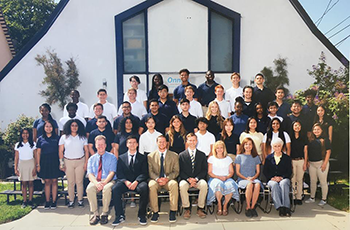
If you want to know more about a personal relationship with God, go here
Amber Varela studies at the Lighthouse Christian Academy in Santa Monica.

